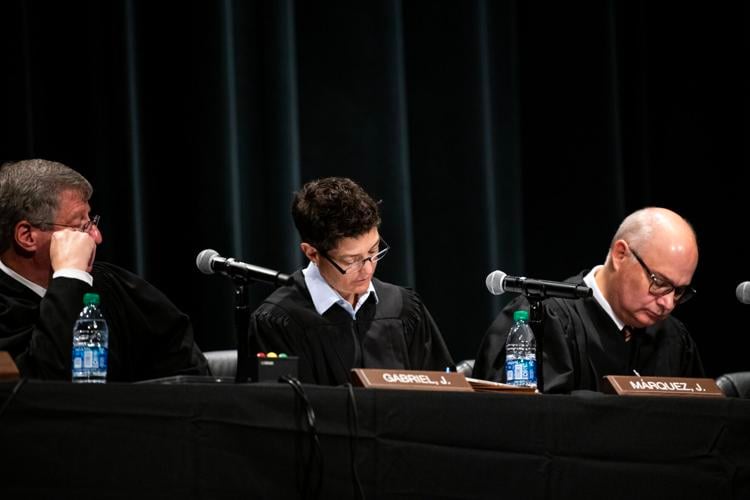By Trace L Hentz, blog editor and adoptee
If we lost ICWA, let's look at South Dakota. How are they doing? Terrible! Also not good, I have posted on this website many times their failures to protect Native kids from predators called social workers and missionaries.
Why ICWA matters there seems pretty obvious: Kids are screwed without it.
LIKE: Why SD lawmakers won't be studying Indigenous child welfare this year
The kids are not alright: Little progress on welfare of Native children in South Dakota
Keeping families together
(excerpt)
One of the commission’s recommendations implemented by the legislature was to address kinship placements. Kinship placements refers to keeping children with relatives, which Mousseau said can minimize the trauma experienced by the child.
Following the implementation of preference for kinship placements, DSS found that there was an increase of 25% of such placements for all children between July of 2004 and June of 2005.
According to data requested by Foster, there are still large gaps of the number of children, Native and non-Native, that are placed with relatives.
During the session, Democratic Representative Peri Pourier introduced House Bill 1229 to address such placements. The bill died in the House Judiciary committee.
Mousseau said that kinship placements are important to the long-term wellbeing of children, especially when it comes to delinquency and recidivism.
“It is a practice in social work that has been shown to have amazing effects,” Mousseau said. “And we wanted all the children of South Dakota to have the opportunity to be placed with their relatives. That didn’t even make it out of committee.”
From poverty to prison
Data from the National Data Archive on Child Abuse and Neglect shows that in 2020, 95% of Native children affected by maltreatment were experiencing neglect compared to 86% of their non-Native peers. The data also showed that Native children face higher rates of abandonment and parents with substance abuse issues.
“Being born and raised in one of the most poorest counties in the United States, I can tell you that neglect looks a lot like poverty,” Pourier told House lawmakers on Wednesday.
South Dakota is home to some of the poorest counties in the country, many of which are on tribal land.
Pourier and Mousseau say the impact of poverty and neglect in childhood connect directly to crime and the overflowing prisons in South Dakota.
“South Dakota is funding more prisons because there’s a need but we go further upstream, there’s that need because of policies to remove children that dates back, which is why ICWA came into effect in 1978 and it has been in effect since,” Mousseau said.
As of January 31, 2023, Native American women outnumbered women of other races in South Dakota’s prisons. Additionally, nearly 33% of the male inmates in state prisons are Native American.
Mousseau said addressing the disproportionate rates of Native children in foster care, specifically those not placed with kin, can better address issues of crime and substance abuse.
 |
“As you can imagine being removed from your family and being placed outside of your family, which a lot of Indian children are, that’s traumatic. That has dramatic effects on somebody who has to experience it and their children, right, their brains are still developing there,” Mousseau explained. “And we know from the Adverse Childhood Experiences Study that, you know, those early traumatic experiences in children’s lives leads to negative health outcomes, run ins with the law, you know, substance use. Look up the ACEs study, that that has been foundational.”
READ:
The Lost Bird of Wounded Knee - South Dakota Public Broadcasting
Congress originally enacted ICWA after learning of the large number of American Indian children being removed from their households into non-tribal families and institutions.
to be continued

























No comments:
Post a Comment
Please: Share your reaction, your thoughts, and your opinions. Be passionate, be unapologetic. Offensive remarks will not be published. We are getting more and more spam. Comments will be monitored.
Use the comment form at the bottom of this website which is private and sent direct to Trace.